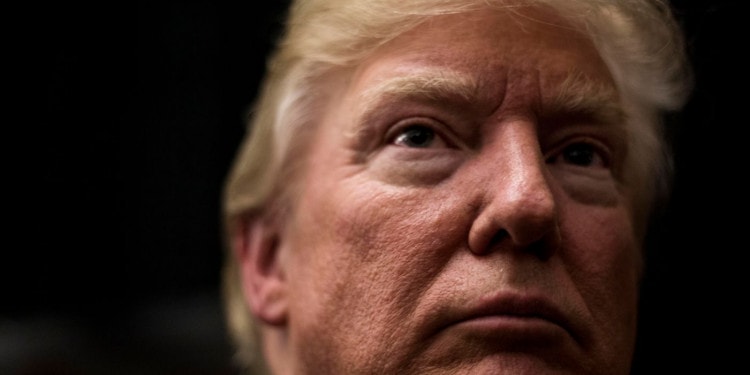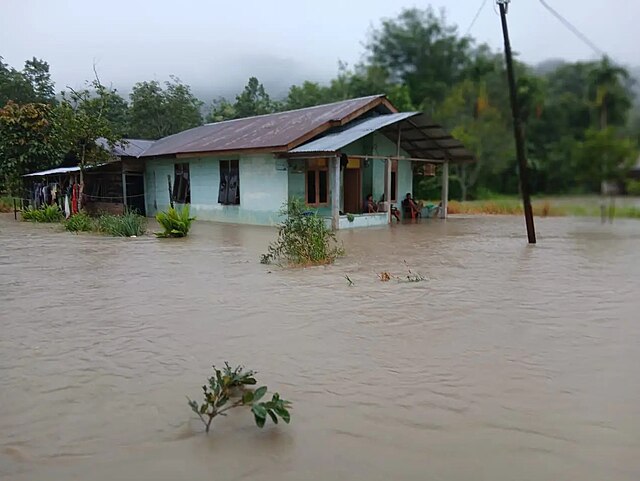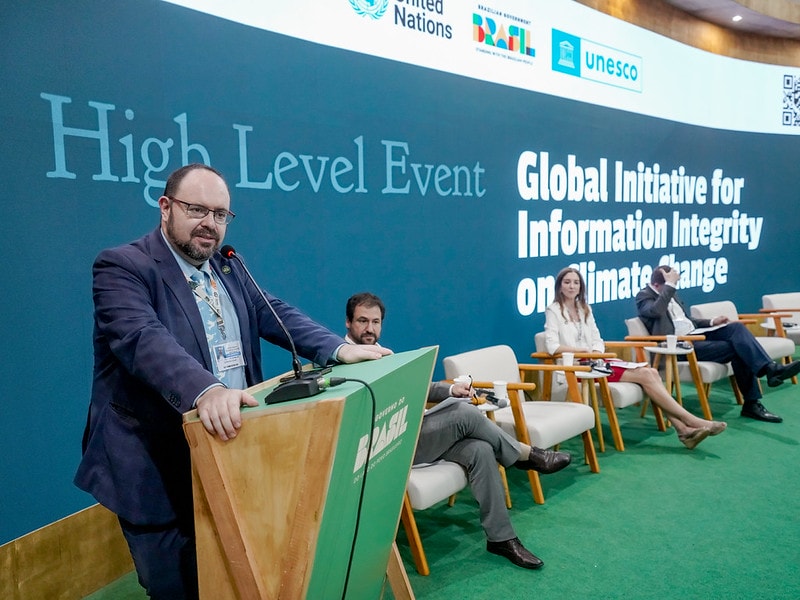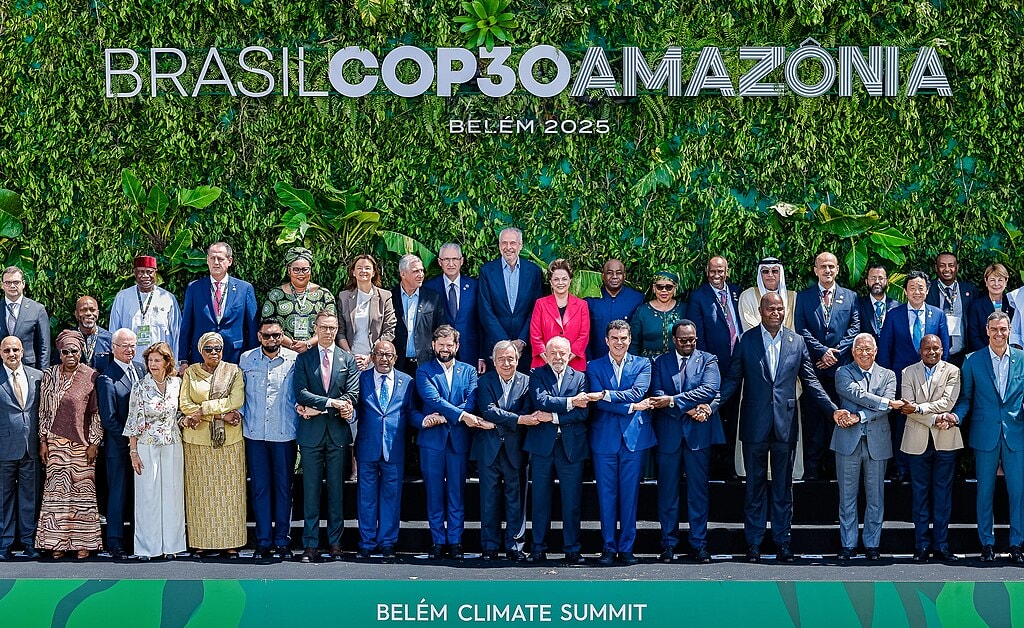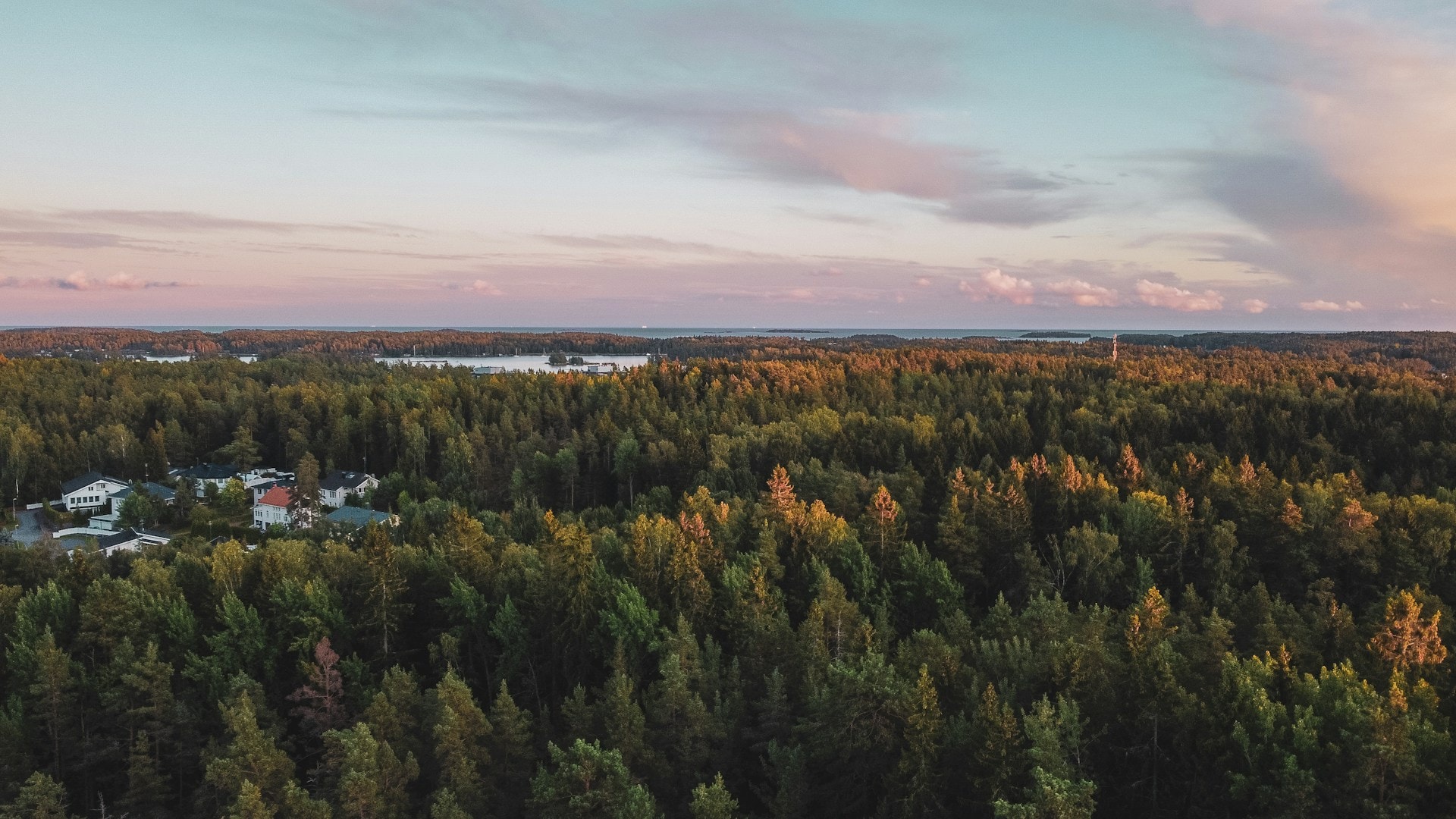Stigma-inducing discrimination caused by Republican-frontrunner Donald Trump creates mental health disparities amongst minority Americans.
- People vying to be our leaders should be embracing and promoting diversity
- Studies have shown that politically conservative people tend to harbor the most negative views of Islam in Western society
- As is the case with any minority group experiencing high levels of discrimination, mental health and physical health issues can appear within this population
As is the case with yearly political election cycles, potential candidates promise outrageous things in order to appeal to constituents and gain their trust. And this 2016 Presidential Election does not disappoint. With political missteps plaguing both Republicans and Democrats, the media circus that is this campaign trail has been fraught with outrageous moments. If outlandishness is the one-way ticket to this media circus, though, there is only one ringleader worth covering: Donald Trump.

In the photo: While many of these candidates have dropped from the race, this collage captures the majority of “major” players in the 2016 Presidential Election. Crowded much? Photo Credit: Wikipedia
From the get-go, Trump has made it clear that outrageousness would be the name of his political game. Whether he promises to build a wall to keep the rapists, drug pushers, and violent criminals of Mexico out of the US, or to ban all travel to the US by Muslims until the ISIS issue is solved, Trump has a way of scapegoating minorities for what he deems to be the issues facing Americans today. Scapegoating minorities is not a new phenomenon, but rather a tried and true concept in politics that has proven quite successful. Islamophobia had been used, especially after 2001, by politicians as a means to drum up support for candidates. By the 2008 election, though, the general public felt the fatigue of such a polarizing message, as was most apparent in the lack of support the Republican candidates who championed Islamophobia received. But after political fervor surrounding Islamophobia died down, one man chose to revive this stigma-inducing rhetoric: Trump (and from there, other Republican nominees followed suit).
It makes sense from a political perspective that Islamophobia would be a tactic to drum up voting support. Studies have shown that politically conservative people tend to harbor the most negative views of Islam in Western society. Conservatives are not the only reason Islamophobia exists, though, as media outlets, that play an integral role in promoting mainstream culture and ideals, tend to feature Islam and the Middle East in a more negative light.
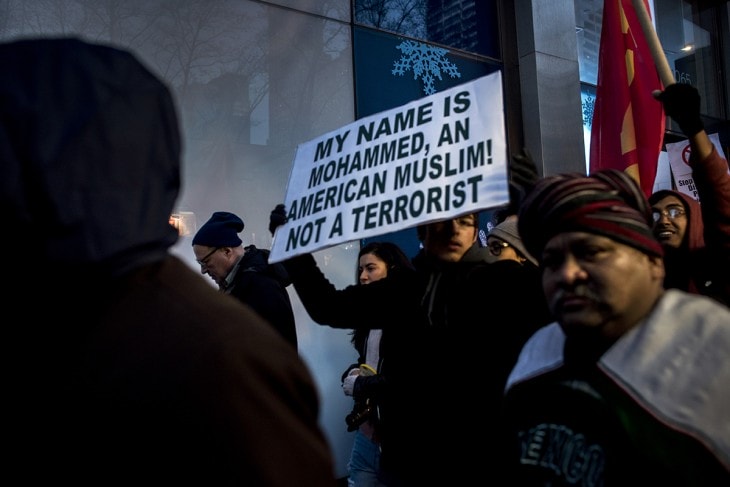
In the photo: Protestors organize at an anti-Muslim speech and anti-Islamophobia protest held outside Trump Tower in New York City Photo Credit: Noor Foundation
Dr. Jean Cohen, a political science professor at Columbia University specializing in contemporary political and legal theory, recalled that scapegoating is not a new tactic used by politicians to sway the masses.
“This type of discrimination affected Catholics and Jewish immigrants in the past,” Cohen said. “Demonizing Islam is not something we should do and is extremely irresponsible.”
Related articles: “CHECKS AND BALANCES AND IMMIGRATION”
“THE RISE OF THE POST-COMMUNIST”
Dr. Cohen noted that Trump’s tactics are bullying at its worst. She called his comments on women and other minority groups cowardly and political pandering to the quasi-racists who make up a small minority of the American public. But what is supposed to be a small minority is now pushing Trump toward a Republican nomination.
“He knows how to identify with the sentiments of the people who are not getting the support or are failing,” Cohen said. “He plays on their prejudices instead of playing on policies that will alleviate the situation.”
… as one’s culture and ethnicity continues to be devalued by the mainstream and dominant culture, depression and other mental illnesses can begin to affect members of those ethnic communities.
This irresponsibility on Trump’s part interestingly correlates with an uptick in hate crimes and violence against Muslim- and Sikh-Americans and their communities. Whether vandalizing Gurdwaras and Mosques, places of prayer in the Sikh and Islam religions, respectively, or attacking those people because of their appearance as was the case in California and New York in the past months, some conservatives have been less accepting of those who are taken for Muslim.
These acts of terror are usually accompanied by messages telling the assaulted to go back to his or her country. Even in New York, a city known to house people of all identities, my friends have been subjected to bias and discrimination for wearing hijabs, turbans, or just walking the streets as a brown person. While it may be hard to prove how Trump’s comments led to an increase in negative associations with people who are perceived as Muslim, I believe that they definitely contributed to this movement.

In the Photo: Vandalism plagues Muslim and Sikh places of worship. Photo Credit: Sikh Coalition
Dr. Aasim Padela, assistant professor of Medicine at the University of Chicago specializing in the intersection of community health, religious tradition, and bioethics, explained that Trump’s comments come from a place of fear.
“There’s a small minority of individuals who claim to be Muslim and have committed atrocities; and there’s a sense of fear that they represent the whole,” Padela said. “There has been an increase in vitriol and anti-Muslim discrimination reported… since Trump’s comments.”
In the land of the free and the home of the brave, not everyone feels free and able to live out his or her identity for fear of inciting hate crimes, discrimination, and even prejudice. This struggle has plagued not only adherents to the Islam faith but also those who are stereotyped as Muslim due to skin color, geographic heritage, or even appearance.
Muslims and those who appear Muslim have been targets of discrimination long before Trump’s comments, Padela confirmed. This falls in line with much of the research exploring Islamophobia and hate crimes.
In other words, Islamophobia has the potential to cause health issues in Muslims, Sikhs, and others who are victims of this terrible trend.
Moral superiority is to blame for much of the discrimination and hate crimes affecting Muslims, according to Padela.
“They believe people who are different are somewhat lesser than them, which breeds a sense of xenophobia [and] racism,” Padela said. “There have been positive developments with outreach being done for the [Islamic] community,… but we need durable changes in how people think about our community.”
As is the case with any minority group experiencing high levels of discrimination, mental health and physical health issues can emerge within this population. The African American community has been a model minority group to study regarding the effects of stress and discrimination on health outcomes. According to research, African American community members experienced higher levels of distress when compared to their White peers. An increase in life stressors, greater levels of alienation, and discrimination were all contributing factors in this. The research concluded that as one’s culture and ethnicity continues to be devalued by the mainstream and dominant culture, depression and other mental illnesses can begin to affect members of those ethnic communities.
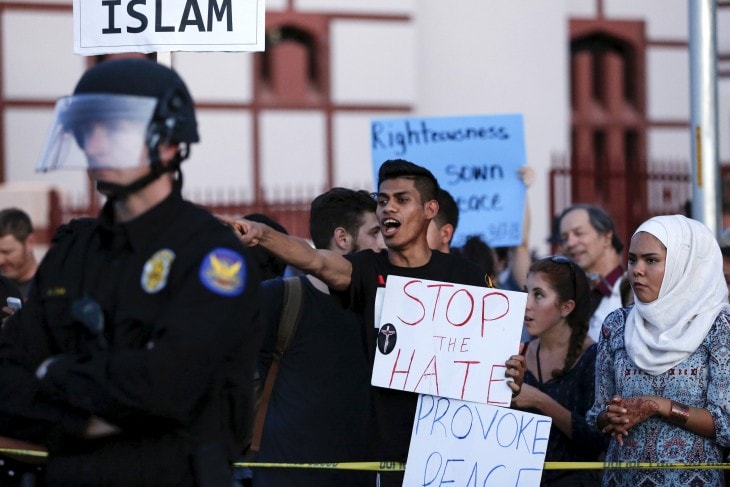
In the Photo: Counter-protesters promote tolerance in Phoenix, Ariz. in response to anti-Muslim protests in 2015 Photo Credit: REUTERS/Nancy Wiechec
Studies indicate that in societies where cultural diversity is not celebrated, those of other cultures may perceive discrimination, negative stereotypes and prejudice just because of their cultural identity.
These feelings can make it harder for certain individuals to integrate into other cultures, leading to more perceived stigma. Kunst discussed further how this perceived stigma can lead to issues in identity development, which also affects how one’s own self-esteem and how one integrates and becomes a productive member of society. Those who were targets of discrimination reported developing a lower national engagement and lower integrative need. In other words, they were less likely to want to buy into mainstream culture and integrate.
To relate it back to our topic at hand, it means that Trump and the rest of the cast of this election cycle are making it harder for people to feel at peace in their own homes. Their rhetoric could convince people to demonize America and the West in general. And wasn’t that how the Daesh (ISIS, ISIL, or however you want to call it) was created?
As sociologist Erik Love so eloquently put, those who experience Islamophobia tend to appear Middle Eastern. This includes Christians, Muslims, and Sikhs from various backgrounds and ethnic regions like Northern Africa, the Middle East, and Southwest Asia. Love notes that most Arab Americans are not even Muslim, yet they get dragged into this hatred spiral because of their appearance.
In the Video: British Muslims just having a good time, living life, and enjoying things just like the rest of the Western world. These people featured in the video are examples of the fun-loving people being targeted unjustly by Islamophobia. Video Credit: BENIStream
It is important to note that this mental health deterioration is not just limited to adults – it affects adolescents, too.
One study pointed out how Muslim teens and children who had experienced higher levels of perceived racism also reported higher levels of stress, depression, anxiety, and other physical and mental health issues. In other words, Islamophobia has the potential to cause health issues in Muslims, Sikhs, and others who are victims of this terrible trend. It just goes to show how important one’s words and scapegoating are. While Trump and the rest of the election circus may not necessarily understand or really care what damage they are doing to the people they may potentially govern, they are nonetheless causing harm to American people.
This perceived racism can range from miniscule to gargantuan effects on one’s mental well-being, leading to depression, anxiety, and other forms of psychosis.
Padela was quick to point out that most Americans are good-natured. But he is concerned about the future of minority safety in America based on the influx of violence against his community.
“We have a history of racism against African Americans and others,” Padela said. “Without minority presence [in America], we lose the moral fiber of our society.”
Racism and ethnic discrimination can lead to perceived racism. This perceived racism can range from miniscule to gargantuan effects on one’s mental well-being, leading to depression, anxiety, and other forms of psychosis. This type of behavior can lead to issues in identity formation, cognitive development, self-esteem, and even into social isolation, taking on the roles they have been assigned by society, and physical health disparities.
This can lead to an overall lower quality of life. It falls on us as a society to combat these issues so we don’t have these long-term health effects, Padela confirmed. “People who perceive discrimination tend to have poorer self-perceptions of their health and have psychological distress, which leads to poor behaviors,” he said. “Many times these people can engage in risky health behaviors… which have long-term consequences as well.”
Other forms of racism and ethnic discrimination are not acceptable in society, so Islamophobia should be afforded the same treatment. “Anti-Semitism is not tolerated in any form, and Anti-Semites will not speak like that in public because it is socially unacceptable,” Padela urged. “It’s the same issue.”
People vying to be our leaders should be embracing and promoting diversity, Padela remarked. “It’s one thing to hold these views and speak uninhibited, but it’s another to speak like this and have people agree with you,” he said. “It’s up to our leaders to create a climate of tolerance.”

In the Photo: A London Mosque in the sunlight as a new day begins. Photo Credit: Flickr/AwayWeGo210
Contributing Research:
Amer, M. M., & Bagasra, A. Goebert, D.; Hammad, A., & Arfken, C. L.; Kunst, J. R., Tajamal, H., Sam, D. L., & Ulleberg, P.; Love, E.; McLaughlin, A., Doane, L., Costiuc, A., & Feeny, N.; Ogan, C., Willnat, L., Pennington, R., & Bashir, M.; Wang, B., Li, X., Stanton, B., & Fang, X.
Featured Image Photo Credit: Rolling Stone


